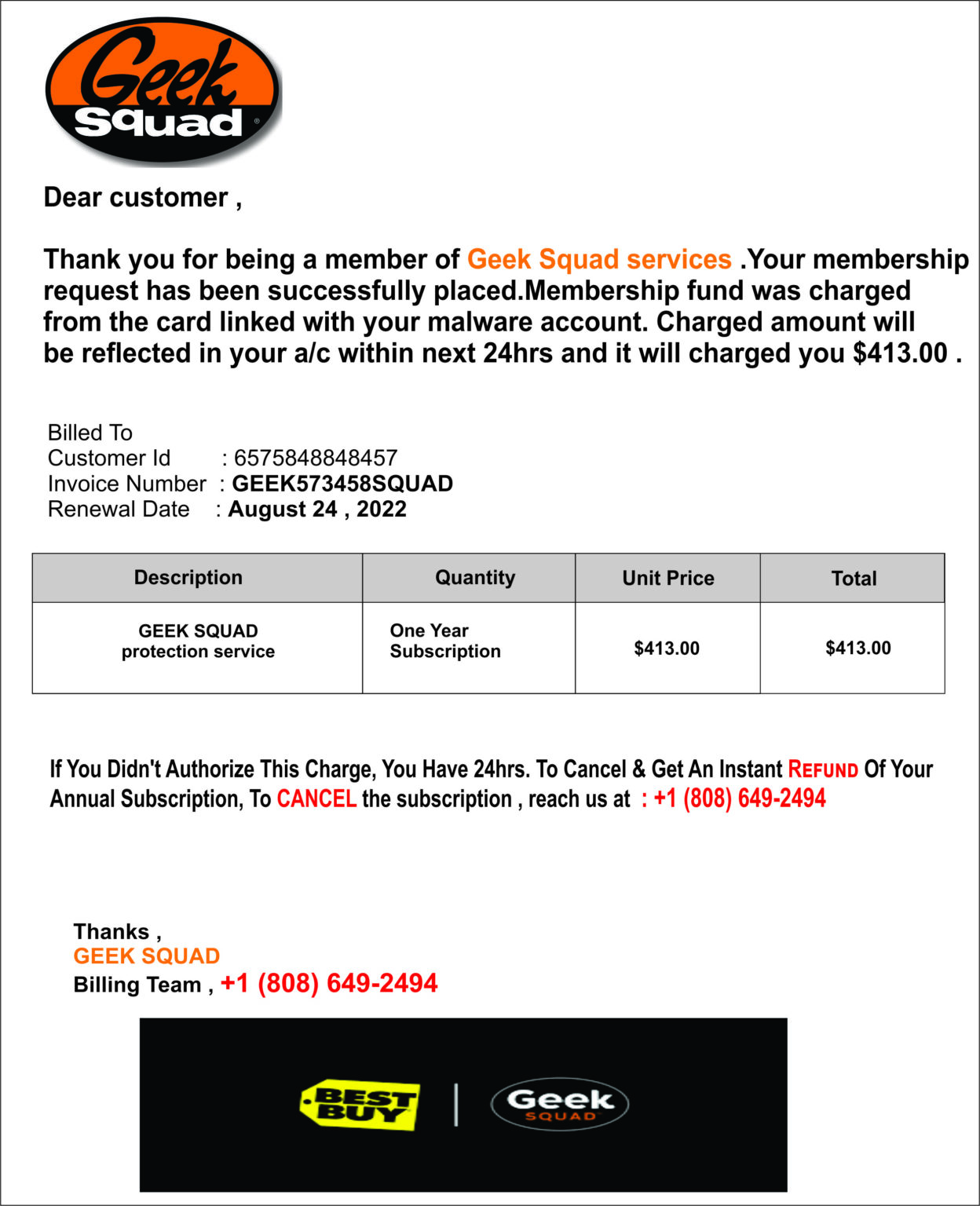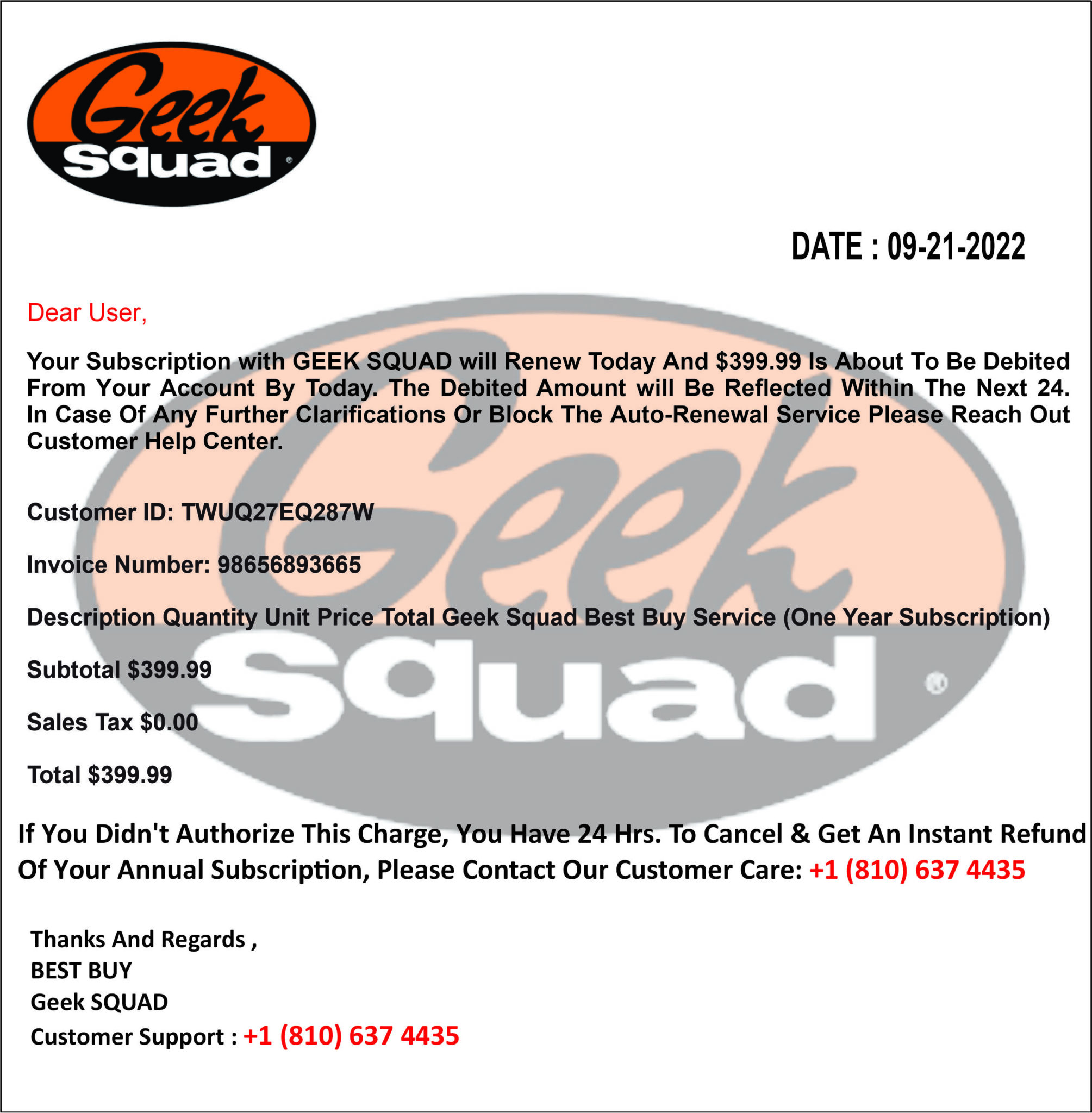Watch Out For That McAfee Scam Invoice: Stay Safe And Informed
Imagine this—you're scrolling through your emails, and suddenly you see an official-looking invoice from McAfee. It looks legit, right? But hold up! Before you panic or reach for your wallet, let's dive into the world of McAfee scam invoices and how you can spot them before they scam you.
McAfee is one of the most trusted names in cybersecurity, but unfortunately, it's also a prime target for scammers. These sneaky fraudsters love to impersonate well-known brands to trick people into giving away their hard-earned cash or personal info. If you've ever received a suspicious invoice claiming to be from McAfee, you're not alone. This scam has been around for years, and it's still going strong.
So, what exactly is a McAfee scam invoice? Simply put, it's a fake invoice sent by scammers pretending to be McAfee. The goal? To convince you that you owe money for services you never signed up for—or worse, to steal your sensitive information. In this article, we'll break down everything you need to know to protect yourself and avoid falling victim to these scams.
Now, let's get into the nitty-gritty details. But first, here's a quick overview of what we'll cover:
- What is a McAfee scam invoice?
- How to identify a fake invoice
- Common tactics used by scammers
- Steps to protect yourself
- Real-life examples of McAfee scams
- What to do if you've been scammed
Understanding the McAfee Scam Invoice
First things first, let's talk about what a McAfee scam invoice actually is. In simple terms, it's a fraudulent document sent via email or other means, claiming that you owe money for McAfee products or services. These invoices often look super official, complete with McAfee branding, logos, and even invoice numbers. But don't be fooled—they're all fake.
Scammers love to target popular brands like McAfee because people trust them. They know that if they can mimic the look and feel of a legitimate invoice, they have a better chance of tricking people into paying up. And let's face it, who doesn't get a little nervous when they see an unexpected bill in their inbox?
Why Do Scammers Target McAfee?
McAfee is a globally recognized name in cybersecurity, and that's exactly why scammers love it. Here's why:
- Brand recognition: McAfee is known worldwide, so scammers know people are more likely to trust emails from them.
- Subscription-based model: McAfee offers subscription services, which makes it easy for scammers to claim you owe money for a renewal.
- Psychological impact: Cybersecurity is serious business, and scammers know that fear of security breaches can push people into acting quickly without thinking.
How to Spot a Fake McAfee Invoice
Alright, so you've received an invoice that claims to be from McAfee. How do you know if it's legit or a scam? Here are some red flags to look out for:
First, check the email address. Legitimate McAfee emails will always come from an official domain like "@mcafee.com." If you see something fishy, like "@mcafeesupport.com" or "@mcafee-security.com," it's probably fake. Scammers love to create lookalike domains to trick people.
Next, inspect the invoice itself. Look for spelling or grammar mistakes, blurry logos, or inconsistent formatting. Legitimate companies like McAfee take pride in their branding, so anything that looks off should raise suspicion.
Key Signs of a Scam Invoice
Here's a quick checklist to help you identify a fake McAfee invoice:
- Unofficial email address
- Unexpected charges for services you didn't sign up for
- Urgent language demanding immediate payment
- Requests for sensitive information like credit card numbers
- Lack of detailed billing information
Common Tactics Used by Scammers
Scammers are sneaky, and they use a variety of tactics to trick people into falling for their scams. Let's break down some of the most common ones:
One popular tactic is the "urgent payment required" approach. Scammers will send emails claiming that your account will be suspended or your security will be compromised if you don't pay immediately. This creates a sense of panic, making people more likely to act without thinking.
Another tactic is impersonating McAfee customer support. Scammers might call or email you, pretending to be from McAfee, and offer "technical support" to fix nonexistent issues—all while trying to get your personal information.
Psychological Tricks Scammers Use
Scammers are masters of manipulation, and they use psychological tactics to exploit your fears and desires. Here are a few examples:
- Fear of losing security: Scammers know that cybersecurity is important, so they'll play on your fears to convince you to act.
- Sense of urgency: By creating a false sense of urgency, scammers pressure you into making quick decisions without thinking it through.
- Social proof: Some scammers will claim that "thousands of customers" have already paid, making it seem like everyone else is doing it too.
Steps to Protect Yourself
Now that you know what to look for, let's talk about how to protect yourself from McAfee scam invoices. Prevention is key, so here are some steps you can take:
First, always verify the source of any invoice you receive. If it claims to be from McAfee, go to their official website and log into your account to check for any outstanding bills. Never click on links in suspicious emails—they could lead to phishing sites designed to steal your info.
Second, use strong, unique passwords for all your accounts. This makes it harder for scammers to gain access to your personal information if they do manage to breach your security.
Best Practices for Staying Safe
Here are some additional tips to keep yourself protected:
- Enable two-factor authentication (2FA) wherever possible
- Regularly update your software and antivirus programs
- Be cautious when sharing personal information online
- Report any suspicious activity to the authorities
Real-Life Examples of McAfee Scams
Let's take a look at some real-life examples of McAfee scams to see how they work in practice. These stories will give you a better understanding of what to watch out for.
In one case, a user received an email claiming they owed $499 for a McAfee subscription they never signed up for. The email included a detailed invoice and even a fake invoice number. Fortunately, the user noticed the unofficial email address and avoided falling for the scam.
Another user reported receiving a phone call from someone claiming to be McAfee support. The caller said there was a "serious security issue" with their computer and offered to fix it—for a fee, of course. The user hung up and reported the incident to the authorities.
Lessons Learned from Real Scams
These real-life examples highlight the importance of staying vigilant. Always double-check the source of any communication claiming to be from McAfee, and never give out personal information unless you're absolutely sure it's legitimate.
What to Do If You've Been Scammed
Unfortunately, not everyone manages to avoid scams. If you've fallen victim to a McAfee scam invoice, here's what you should do:
First, contact your bank or credit card company immediately and report the fraudulent transaction. They may be able to reverse the charge or freeze your account to prevent further damage.
Next, report the scam to the authorities. In the U.S., you can file a complaint with the Federal Trade Commission (FTC). In other countries, check with your local consumer protection agency.
Steps to Recover from a Scam
Here's a quick guide to recovering from a McAfee scam:
- Contact your financial institution
- Change all your passwords
- Monitor your accounts for suspicious activity
- Report the scam to the authorities
Why McAfee Scam Invoices Matter
McAfee scam invoices might seem like a small issue, but they can have serious consequences. Falling victim to a scam can result in financial loss, identity theft, and even damage to your credit score. That's why it's so important to stay informed and take steps to protect yourself.
Remember, scammers are always coming up with new tactics, so staying vigilant is key. By educating yourself and others about these scams, you can help prevent more people from becoming victims.
The Bigger Picture
Scams like these aren't just about money—they're about trust. When scammers impersonate trusted brands like McAfee, they erode the trust that consumers have in those companies. That's why it's crucial for everyone to do their part in fighting back against these scams.
Final Thoughts
Alright, let's wrap this up. McAfee scam invoices are a real threat, but with the right knowledge and precautions, you can protect yourself from falling victim. Always verify the source of any invoice you receive, and don't hesitate to report suspicious activity to the authorities.
If you found this article helpful, feel free to share it with your friends and family. The more people know about these scams, the fewer victims there will be. And if you've got any questions or stories to share, drop a comment below—I'd love to hear from you!



Detail Author:
- Name : Earnestine Tremblay DVM
- Email : gusikowski.malcolm@yahoo.com
- Birthdate : 2003-03-19
- Address : 436 Pattie Tunnel New Chynashire, TN 80288
- Phone : 1-430-365-8406
- Company : Huels-Toy
- Job : Biological Science Teacher
- Bio : Neque delectus nostrum consectetur odit commodi ratione. Aut et eum dolores ipsum ut voluptatibus corrupti. Porro aut quia molestias fugiat velit autem.